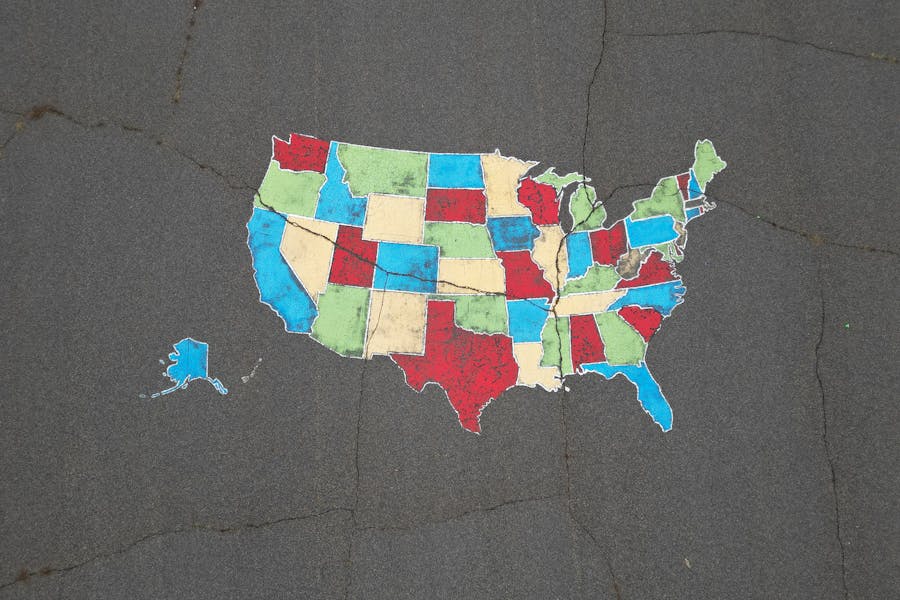How is Out-of-State Property Handled During Probate in Florida?

When a Florida resident dies owning real estate or other property located outside of the state, it can raise many questions for the deceased’s family members and heirs.
How is this out-of-state property handled during the Florida probate process? Does it get included in the Florida proceedings at all, or does it need to go through a separate probate process in the state where it’s located?
The answers depend on a few key factors, but not knowing them can lead to confusion, delays, and even conflict as the estate gets settled. Let’s take a closer look at how Florida probate law deals with a deceased person’s out-of-state assets to ensure a smoother process for all involved.
Domiciliary vs. Ancillary Probate
When a Florida resident dies owning property both in Florida and in another state, the primary probate proceeding will take place in Florida as the decedent’s state of domicile (primary residence). This is known as the domiciliary probate proceeding.
However, for any real estate or tangible personal property the decedent owned in the other state, a separate probate proceeding called ancillary administration may be necessary in that state. Ancillary administration allows the out-of-state property to be marshaled and distributed according to the decedent’s will or the intestacy laws of that jurisdiction.
The Purpose and Process of Ancillary Probate
The main goals of an ancillary probate proceeding are to:
- Prove the validity of the decedent’s will in the state where the property is located
- Appoint a personal representative to manage and oversee the out-of-state property
- Pay any debts, taxes, or claims associated specifically with the out-of-state property
- Distribute the remaining out-of-state assets to the proper beneficiaries
To initiate this process, the domiciliary personal representative (the one appointed in the Florida proceeding) files a petition for ancillary administration with the probate court in the county of the other state where the property is situated. They must provide authenticated copies of the domiciliary probate documents, including the will, order appointing the personal representative, and letters of administration.
If the out-of-state court determines the domiciliary documents are valid, it will open the ancillary administration and issue letters of administration to the personal representative, granting authority to administer the out-of-state property.
The ancillary personal representative must then identify and gather the out-of-state assets, pay any obligations associated with that property, and eventually distribute the assets to the beneficiaries according to the terms of the decedent’s will or the intestacy laws if there is no will.
When Ancillary Probate May Not Be Needed
There are a few situations where ancillary probate may not be required for the out-of-state property, even if the decedent was a Florida resident:
- If the decedent owned the out-of-state property jointly with rights of survivorship with another person, then that property may automatically pass to the surviving owner outside of probate.
- If the out-of-state real estate was owned by a trust rather than the decedent as an individual, then that property likewise may pass according to the trust terms without the need for ancillary probate.
- If the estate is small and meets certain criteria, some states may offer simplified procedures for transferring out-of-state property without a formal ancillary probate process.
The Importance of Proper Estate Planning
Handling one probate process in the decedent’s home state is one thing – adding an ancillary proceeding in another state for out-of-state property can make it even more complicated and drawn-out.
This underscores the importance of comprehensive estate planning. With proper planning, you can structure your estate to minimize or even eliminate the need for ancillary probate, potentially saving your beneficiaries significant time, money, and stress.
Tools like revocable living trusts can be used to hold out-of-state property, allowing it to pass to beneficiaries without going through probate in multiple states. At Vollrath Law, we can help you create a plan that addresses both your in-state and out-of-state assets, ensures your wishes are followed consistently across all jurisdictions and maintains privacy for your financial affairs.
Get the Legal Guidance You Need
If you’re facing the challenge of probating an estate with out-of-state property, our probate attorneys are here to help. We can guide you through the Florida probate process, coordinate with out-of-state counsel, and work to minimize complications and delays.
Our team is dedicated to providing personalized, compassionate legal support to help you navigate this difficult time with confidence and peace of mind. Contact us today to schedule a consultation and learn more about how we can assist you with your probate matter.
